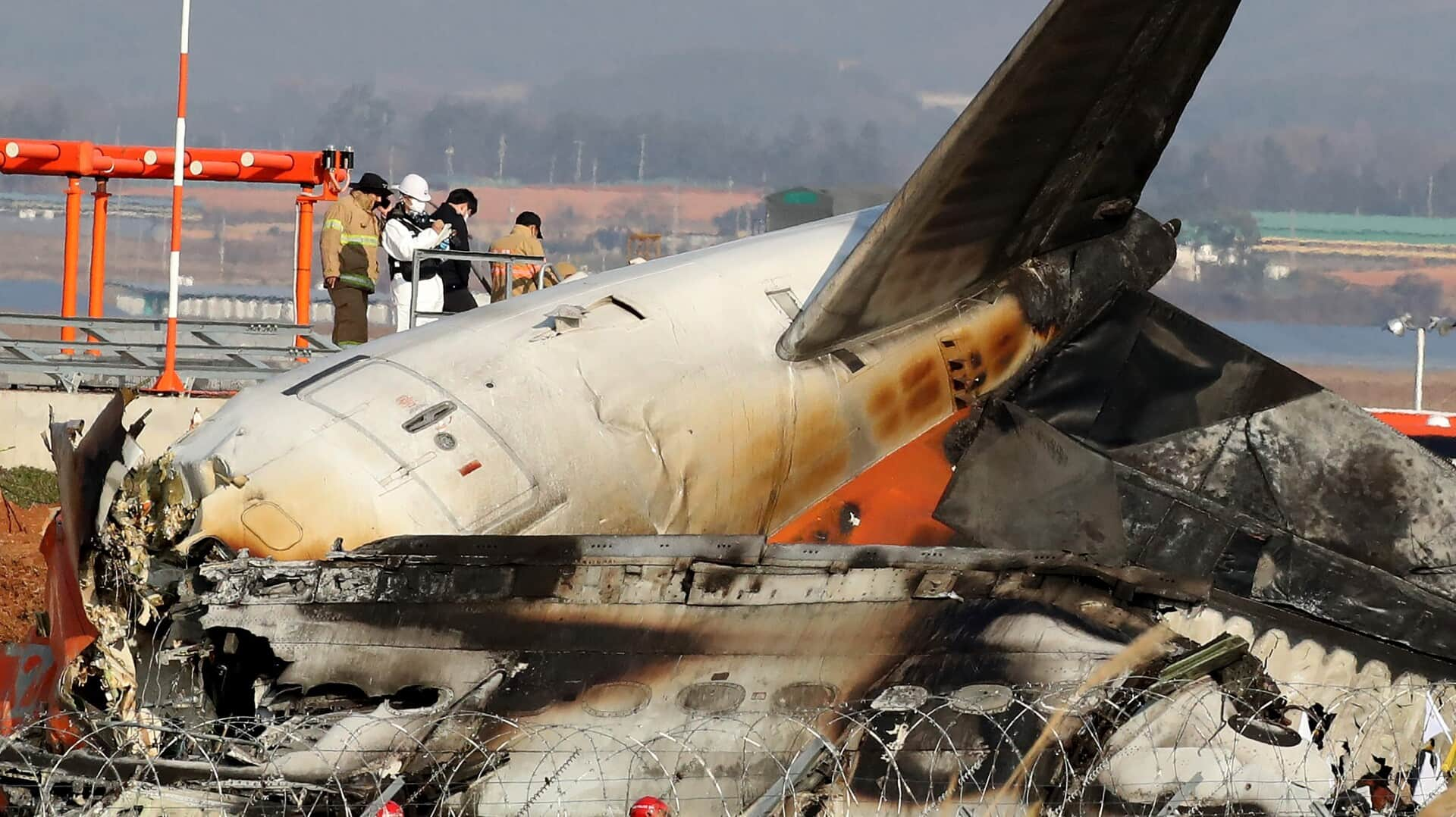
Duck remains, feathers found in ill-fated Jeju Air jet engines
What's the story
A preliminary investigation into the fatal crash of a Jeju Air plane in South Korea has revealed the presence of bird remains in both engines. The Boeing 737-800 jet, which crashed on December 29 while flying from Thailand to Muan, South Korea, was found to contain DNA from Baikal Teals. These are a type of migratory duck that flock to South Korea during winter. The crash killed 179 out of 181 passengers and crew on board.
Investigation continues
Unresolved questions surround Jeju Air crash
"The samples were sent to specialized organizations for DNA analysis, and a domestic organization identified them as belonging to Baikal teals," the report released by South Korea's Aviation and Railway Accident Investigation Board said. The report, however, didn't explain why the plane landed without its landing gear deployed or why flight data recorders stopped recording four minutes before the crash. The aircraft hit a concrete barrier during an emergency belly landing, resulting in a fireball explosion.
Mayday call
Pilots declared emergency due to bird strike
The report also stated that the pilots had spotted a group of birds while approaching runway 01, and a security camera captured the jet nearing a flock during a go-around. At 8:58am, air traffic control warned the pilots about possible bird strikes, just before both voice and data recording systems ceased to function. Seconds after these systems failed, the pilots declared a Mayday due to a bird strike and attempted an emergency landing.
Safety measures
Authorities plan to replace concrete barriers at airports
Both the pilots died. Only two flight attendants survived this devastating incident. After the crash, authorities have said they will replace these barriers with "breakable structures." The captain of the ill-fated flight had more than 6,800 flight hours of experience, while the first officer had logged 1,650 hours. Investigators previously stated that air traffic controllers cautioned the pilot about potential bird strikes two minutes before the aircraft issued a distress signal confirming the bird strike.
Ongoing probe
Investigation continues into Jeju Air crash
The International Civil Aviation Organization (ICAO) mandates accident investigators to issue a preliminary report within 30 days and a final report within 12 months. South Korea's Aviation and Railway Accident Investigation Board has shared its findings with ICAO and concerned countries Thailand, the United States, and France. "These all-out investigation activities aim to accurately determine the cause of the accident," the report said.